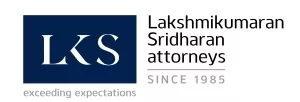- within Tax topic(s)
- with Finance and Tax Executives
- with readers working within the Accounting & Consultancy and Retail & Leisure industries
Ordinarily, as a general rule under the provisions of GST law, any demand by the authorities must be preceded by a show cause notice (SCN) and its adjudication under Section 73 or 74 or 74A of the Central Goods and Services Tax Act, 2017. However, Section 75(12) of the CGST Act encompasses a recovery mechanism by permitting the department authorities to bypass the adjudication process in respect of cases where the assessee has already self-assessed the tax liability but has failed to discharge the corresponding liability.1
Thus, such a provision requires the question of context, wherein the State's drive for efficient and effective tax collection needs to be accurately balanced with the core tenets of the principals of natural justice for the taxpayers. Most importantly, the application of this provision must be strictly construed, as it constitutes an exception to the general rule under Sections 73 and 74/74A, where recovery can only follow a proper adjudication after issuance of a show cause notice and grant of opportunity to the assessee.
In this backdrop, it is important to note that any attempt by the Department to employ it beyond this scope would thus run contrary to the broader framework of the GST Act.
However, surprisingly, the Department has been invoking Section 75(12) of the CGST Act to issue recovery notices not only for self-assessed tax where tax or interest is not paid but also for interest in cases wherein tax is paid through Form GSTR-3B on a potential demand being pointed by the department, treating such interest as an automatic consequence. Situations have arisen, for instance;
1. Where an assessee merely accepts a discrepancy raised during audit proceedings and pays the tax through Form GSTR-3B or,
2. Where GST is paid by an assessee during the course of an investigation on certain points as raised through Form GSTR-3B;
In such cases, recovery notices have been issued under the premise that once the tax is 'self-assessed', interest is inherently included and becomes recoverable without further adjudication. This approach, however, overlooks the distinction that while Section 75(12) permits recovery of self-assessed tax declared under Section 39, it does not by itself include circumstances where tax payment is done pursuance of audit/investigation by the department and in no manner render interest payable in every circumstance of self-assessed tax or otherwise.
Pertinently, there are also various circumstances where the assessee may not have discharged interest under Section 50 precisely because it was not 'payable' — such as:
* where sufficient balance was available in the Electronic Credit Ledger or Cash Ledger, thereby negating any delay warranting interest; or
* where the assessee, under a bona fide belief, considered that the tax liability was not yet due for payment since the time of supply under GST had not been triggered, even though the same was reported in the return.
A closer reading of the provision makes clear that the legislature uses the expression 'any amount of interest payable on such tax'. This choice of language suggests that interest is not automatically subsumed within self-assessed tax but arises only where the conditions for its levy are met, such as delay or default in payment. Herein, it is crucial to note that it is trite law that interest is compensatory in nature and thus, the same cannot become payable in every circumstance.
If such an interpretation of Section 75(12) is allowed to stand, taxpayers will effectively be deprived of the opportunity to contest the very basis of interest liability. Interest would, in practice, become automatic and recoverable without adjudication, even in cases where it is not 'payable' under law.
This also disregards the determination of interest which is statutorily governed by Section 50. In effect, the departmental approach converts a conditional levy into an unconditional one, contrary to the scheme of the CGST Act.
Need for balance: Recovery vs. Natural Justice
In each of these cases, the recovery machinery under Section 79 should not be invoked as a free pass, as the element of admitted and undisputed liability, the very foundation of Section 75(12), is absent. If the Department seeks to recover interest in such circumstances, it must necessarily do so by issuing show cause notice.
The blanket use of Section 75(12) renders the provision draconian, as the assessee is denied the chance to explain the short payment, which the adjudicatory mechanism under Sections 73/74/74A of the CGST Act otherwise ensures before any tax demand is crystallized. The extension of Section 75(12) beyond its limited purpose disregards principles of natural justice, reducing it to a 'mere recovery exercise'. If invoked routinely, the assessee is left with no remedy but to approach the jurisdictional High Court, which may not be feasible in every situation due to monetary and commercial constraints, thereby creating a risk of coercive recovery and undermining confidence in the GST regime.
Notably, in the case of R.K. Transport Private Limited v. Union of India2, the Jharkhand High Court categorically held that where the assessee raises a dispute as to the leviability or calculation of interest under Section 50, the assessing authority cannot proceed to recover interest under Section 75(12) (or through Section 79) without first initiating adjudication proceedings under Sections 73 or 74.
At this juncture, it becomes vital to refer to various recent High Court rulings such as in the case of LC Infra Projects3, Kuddus Ali Construction4 and Mahadeo Constuction5 wherein the operational reach of Section 75(12) has been considerably restricted, laying down key boundaries that curb any excessive or discretionary use of the provision; clarifying that Section 75(12) cannot be misused to bypass SCN in such cases.
Therefore, the High Courts, even in cases of such 'self-assessed tax,' have given relief to the taxpayers by holding that interest cannot be demanded automatically and that the Revenue must follow proper adjudication procedure under Sections 73/74/74A of the CGST Act, including giving the assessee opportunity to contest before any demand or recovery of interest is finalized.
Way forward
The efficient revenue collection cannot justify weakening procedural safeguards. Section 75(12) must be interpreted and applied strictly and even if invoked, must be invoked in a way that maintains reasoned notice and the taxpayer's right to be heard.
In conclusion, the need of the hour is that the Government issues a comprehensive binding circular clearly delineating the limited circumstances in which Section 75(12) shall be invoked and to what extent. The Department must thereby confine itself to issuing show cause notices in other cases, ensuring that taxpayers have an effective opportunity to contest the demand.
Footnotes
1 The term 'self-assessed tax' shall include the tax payable in respect of details of outward supplies furnished under section 37, but not included in the return furnished under section 39. [Explanation under Section 75(12) of the CGST Act 2017]
2 2022 (2) TMI 1051 - Jharkhand High Court
3 2020 (4) TMI 664 - Karnataka High Court
4 2025 (5) TMI 914 - Calcutta High Court
5 2020 (4) TMI 666 - Jharkhand High Court
The content of this article is intended to provide a general guide to the subject matter. Specialist advice should be sought about your specific circumstances.



